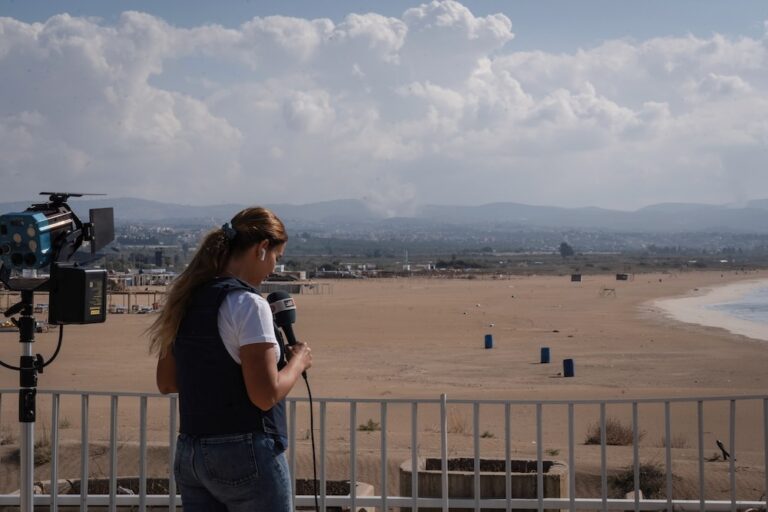The most pressing issue is Article 92, which states that technical service providers must be licensed by an information technology regulatory body.
(Maharat Foundation/IFEX) – Beirut, 17 June 2010 – During its last Legislative Assembly on Tuesday the 15th of June 2010, the Lebanese Parliament postponed its discussion on the draft law on information technology received from the sub-committee of the joint parliamentarian committees to study the bill further. If passed, this proposed law would limit freedom of opinion and expression and set restrictions on the circulation of information via the Internet.
The most pressing issue is Article 92, which states that technical service providers must be licensed by an information technology regulatory body. In fact, Article 80 of the draft law gives powers to this regulatory body to manage the administration of websites and monitor their work, especially Internet sites that fall under the domain name (LB). Furthermore, the regulatory body would be given the authority to regulate and control electronic data hosts.
Moreover, Article 82 of the draft law grants the regulatory body the right to conduct administrative, financial and electronic inspections, and the authority to access any information or computer systems or tools related to operations, including those used for the development of processors of personal data.
Under Article 113, technical service providers – defined under this law as communication service providers and data hosts that provide publishing services to users – are obliged to provide the security services with relevant information regarding the processing of data for any communication through its network, if requested by the relevant judicial authority.
In addition, Article 125 imposes a punishment of up to one year imprisonment if the technical service provider does not respond to demands by judicial authorities to hand over data.
The draft law creates a system for collecting and processing personal information that would violate individual privacy and private information posted on the Internet. Article 137, for example, bans the right to appeal requests for personal information if the requests are authorized by judicial authorities.
Maharat Foundation is concerned by the lack of clarity in the draft law and the absence of details about the authority granted to the regulatory body, which appears to have unlimited authority.
Moreover, the draft law does not specify which judicial authority is authorized to request electronic data and does not define the limits of information that may be subject to disclosure, nor does it specify what constitutes a threat to security that would justify such a request.
Maharat Foundation demands that the draft law be reexamined and that stakeholders from civil society, providers of IT services, media organizations, websites and the private sector be involved in the discussions and be allowed to proposed amendments to it, in order to ensure freedom of opinion and expression, freedom of information and protection of personal privacy.


